#lo bianco
Explore tagged Tumblr posts
Text
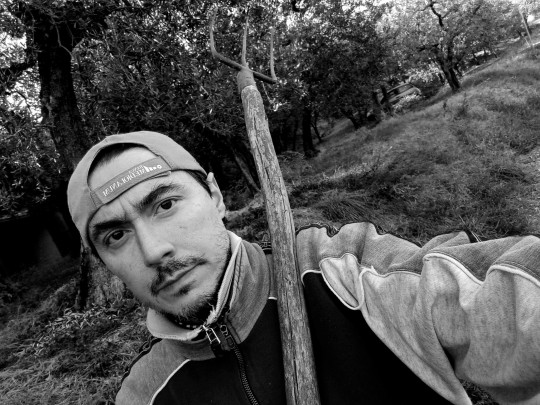

Tutto fumo e niente arrosto.
#bianco e nero per non far vedere il mio colorito verdastro che mi contraddistingue#finirò per farmi le foto al cesso con la bocca a culo di gallina#me lo sento#sopportatemi#ve vojo bene
186 notes
·
View notes
Text

God Told Me To (1976)
#god told me to#tony lo bianco#deborah raffin#sandy dennis#1970s horror#1970s movies#1976#larry cohen#sci fi horror#vintage movie ads
88 notes
·
View notes
Photo
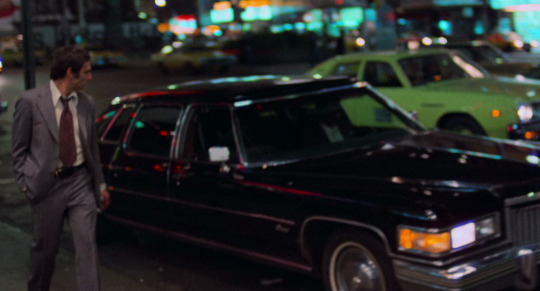

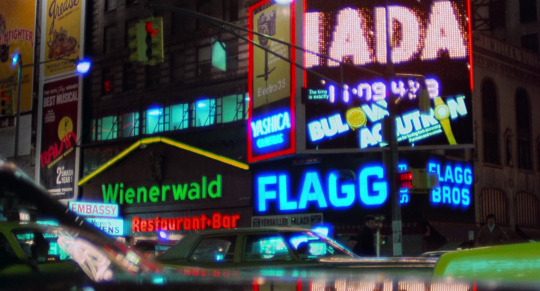
God Told Me To (Larry Cohen, 1976)
119 notes
·
View notes
Photo

(via R.I.P. Tony Lo Bianco: ‘The French Connection’ And ‘Law & Order’ Actor Dead At 87 | Decider)
26 notes
·
View notes
Text
Not me discovering at 02:15 in the morning that Valentina Arrigetti is openly queer and has a girlfriend (!!!!!!) after all the rumours around 2014's Olympics games and the thing™️ between her and Eleonora Lo Bianco. That was never confirmed and never denied bc it was 2014, they were in Russia, and nobody actually asked them after it.
#I CAN WIN SOME APPARENTLY!!!!!!!!!!!!!!!!!!!!!!!!!#2014 me is celebrating high times bc sometimes my gay radar works :“)#and who the fuck is going to sleep nowewww#a win for a wee lesbian and the wee lesbian is me#italian volleyball#AHHHHHHHHHHH#queer volleyball player#even if she is an ex one and the eleonora lo bianco thing it's a tad more complicated
9 notes
·
View notes
Text

Tony Lo Bianco
American actor who fitted naturally into the 70s trend for gritty crime thrillers as a brute with a twinkle in his eye
The American actor Tony Lo Bianco, who has died of cancer aged 87, specialised in hoods and heavies, often played with an uncommon twinkle in the eye that suggested he was in on some grim private joke. “I guess I’ll have to do a nun next,” he said after a run of such roles.
There was never any doubt that he meant business. “If you encountered Tony in a deserted alley at midnight, you’d be inclined to hand him your wallet before he asked for it,” wrote a US newspaper in 1978.
With his conspiratorial manner, imposing stare and tractor-tyre eyebrows, Lo Bianco fitted naturally into the 70s trend for gritty crime thrillers. As the mobster Sal Boca in The French Connection (1971), he is pursued by the New York cop “Popeye” Doyle (Gene Hackman) for his role in buying a massive shipment of heroin. The Seven-Ups (1973) reunited Lo Bianco with his friend and French Connection co-star Roy Scheider, and gave him a bigger bite of the cherry, this time as a shady police informer in a camel-hair coat and sharp hat.
His first major role had already proved he was more eccentric than any rent-a-thug. In The Honeymoon Killers (1970), which was inspired by real events, he played the silver-tongued Spanish con-artist Ray Fernandez, who embarks on a murder spree with a lonely woman whom he tries to swindle. Martin Scorsese was sacked as the film’s director for dragging his feet, but the end result (with the composer and librettist Leonard Kastle stepping in after Scorsese’s exit) has a sizzling, unwholesome B-movie tang, due in no small part to Lo Bianco’s oleaginous presence and his rapport with Shirley Stoler as his partner-in-crime.
Most of his finest screen work was done in the 70s. He was a police detective investigating seemingly random murders in the supernatural horror God Told Me To, and an injured, suicidal former rodeo rider raising his young sons in Glory Days, AKA Goldenrod (both 1976).
Bloodbrothers (1978), in which Lo Bianco was all gruffness and gristle as an Italian-American construction worker pressuring his recalcitrant son (Richard Gere) to follow in his footsteps, was especially dear to him. “It’s very close to my heart,” he said. “I know the characters like I know my family.”
In the same year, he was a surprisingly genial crime boss opposite Sylvester Stallone in the union drama F.I.S.T. “Sure, I could have played [him] as one more Italian thug,” he reflected. “But does the world really need another overbearing, obnoxious, obvious slob to dismiss or look down on as some kind of buffoon?”
Lo Bianco attributed his facility as an actor partly to his upbringing. “Coming from an Italian family in a big city, my emotions were always close to the surface, ready to live life fully, to give, to laugh and cry without holding back, without strain.”
He was born in New York City to Carmelo, a taxi driver, and Sally (nee Blando). One of his teachers at William E Grady high school suggested he give acting a go, though his early passions were largely sporting ones. As a teenager, he tried out for the Brooklyn Dodgers, and was also a Golden Gloves welterweight boxer. “I guess you’d say I was a borderline delinquent. It was the 50s, Elvis time, leather jackets, a time for being tough.”
Years later, he would step back into the ring to play the boxer Rocky Marciano in the television biopic Marciano (1979). He returned to the same story, again for TV, in Rocky Marciano (1999), this time as the gangster-turned-promoter Frankie Carbo opposite Jon Favreau as the prizefighter.
Lo Bianco studied acting at the Dramatic Workshop in Manhattan in the late 50s, and founded the Weekend Theater there in order to gain experience. “I built the sets, the stage, and put in the lighting. I got it going.” He did the same in 1963 with the Triangle Theater, where he also served as artistic director. It was here that he first met Scheider.
He accumulated numerous credits on television, including a recurring role between 1971 and 1973 as a doctor in the long-running soap opera Love of Life, and on stage: in 1975, he won an Obie (an award for an off-Broadway performance) for his portrayal of a fading baseball star in Yanks-3 Detroit-0, Top of the Seventh. He also won a Tony for playing the tormented longshoreman Eddie Carbone in A View from the Bridge in 1983.
Appearing in the Italian caper Mean Frank and Crazy Tony (1973) immediately after his success in The French Connection, Lo Bianco seemed to be spoofing his own image when it was still in its infancy: he played a none-too-bright crook who idolises a legendary gangster (Lee Van Cleef). But the actor re-asserted his authority on television in the anthology series Police Story (1973-76). He was one of only a handful of cast members who appeared in more than one episode. Even more unusually, he was on the right side of the law this time.
In Franco Zeffirelli’s mini-series Jesus of Nazareth (1977), he was Quintillius, who advises Pontius Pilate, played by Rod Steiger. A year later, also on television, he starred in The Last Tenant as a man dealing with the increasing needs of his senile, irascible father, played by the acting guru Lee Strasberg. In the 80s he won plaudits for a TV adaptation of Paul Shyre’s play Hizzoner!, in which he starred as the New York mayor Fiorello La Guardia. This spawned several spin-offs, including La Guardia and The Little Flower, written by Lo Bianco and performed by him across the world at the start of this century.
Notable later roles include a mafia boss in the lighthearted, 30s-set Clint Eastwood/Burt Reynolds vehicle City Heat (1984), a corrupt property developer in John Sayles’s ensemble drama City of Hope (1991), the ivory-haired mobster Johnny Roselli in Oliver Stone’s Nixon (1995), and yet another intimidating gangster in The Juror (1996), with Demi Moore and Alec Baldwin.
Like Robert De Niro, for whom he was sometimes mistaken, it seemed there was nowhere left to go but comedy after playing so many crooks. Having parodied himself at the very start of his film career, Lo Bianco did so again in Mafia! (1998), also known as Jane Austen’s Mafia!, a send-up from some of the team behind the Airplane! and Naked Gun spoof series.
Though he directed to acclaim on stage, he made only one film, the slasher movie Too Scared to Scream (1984). His final picture was Somewhere in Queens (2022), starring and directed by Ray Romano, in which Lo Bianco played the main character’s standoffish father.
He is survived by his third wife, Alyse (nee Muldoon), a writer, whom he married in 2015, two daughters, Yummy and Nina, from his first marriage, to the actor Dora Landey (Anna, a third daughter from that marriage, died in 2006), a brother, John, and six grandchildren. Both his previous marriages – the second was to Elizabeth Natwick – ended in divorce.
🔔 Anthony Lo Bianco, actor, born 19 October 1936; died 11 June 2024
Daily inspiration. Discover more photos at Just for Books…?
10 notes
·
View notes
Text

Farewell to actor Tony Lo Bianco (19 October 1936 – 11 January 2024), who’s died aged 87. His obituaries are inevitably citing The French Connection (1971) as his most famous work, but I treasure his simultaneously sexy and repellent performance as the conman who teams up with Shirley Stoler as the titular homicidal duo in the disturbing 1970 cult shocker The Honeymoon Killers. (The first time I ever saw this twisted black comedy would have been at the glorious, much-missed Scala Cinema in Kings Cross in the early nineties. It left an indelible impression!). Lo Bianco’s gigolo Ray is a swarthy and manipulative charmer with a thick Spanish accent, a toupée and Latin rhythm in his hips. (As a bonus, we get a fleeting glimpse of Lo Bianco’s pert naked cafe con leche butt!). Now I definitely need to seek out his other cult movie entry, God Told Me To (1976). Read more here.
#tony lo bianco#shirley stoler#the honeymoon killers#lobotomy room#vintage sleaze#graham russell#bitterness personified#cult cinema#cult movies#cult films#b movie#black comedy#god told me to#the french connection#italian american#1970s cinema#serial killer#bad taste#shock value
10 notes
·
View notes
Text
On December 26, 2015, It's Alive and God Told Me To were screened as a double-feature on TCM Underground.

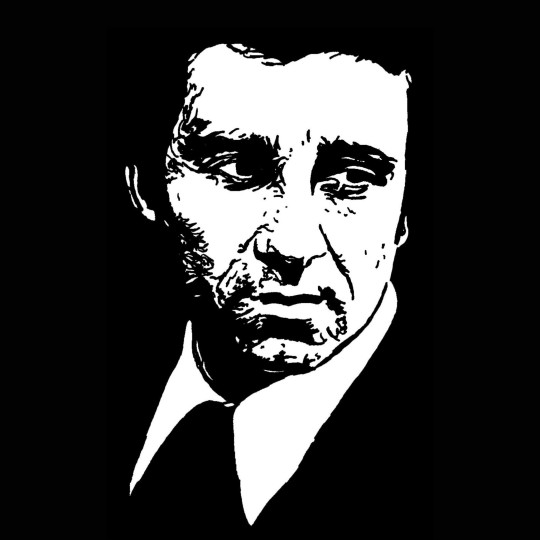
Here's some new art inspired by both Larry Cohen classics!
#it's alive!#it's alive#god told me to#larry cohen#tony lo bianco#horror film#horror art#horror movies#horror#supernatural horror#tcm underground#new world pictures#crime thriller#1970s#grindhouse#grindhouse movies#exploitation film#movie art#art#drawing#movie history#pop art#modern art#pop surrealism#cult movies#portrait#cult film#double feature
14 notes
·
View notes
Text
Il momento surreale quando realizzi che i La Sad sono stati quelli più colorati fino ad ora
17 notes
·
View notes
Text

Leonard Kastle’s “The Honeymoon Killers” February 4, 1970.
#Leonard Kastle#The Honeymoon Killers#1969#1970#Sixties#Seventies#Horror#Drama#Based on a True Story#Thriller#Psychological Thriller#Tony Lo Bianco#👀#2/5
5 notes
·
View notes
Text
“Maria non è stata mai amata dai genitori. Ha fatto di tutto per richiamare la loro attenzione: ha urlato, distrutto i mobili della sua camera, ha preso brutti voti a scuola, li ha presi belli, ha ricevuto un premio per il miglior tema. Nulla ha scalfito l’indifferenza dei suoi genitori. Erano sempre concentrati a parlare di soldi, a lavorare, a litigare, a fare le loro cose… Maria si sentiva un soprammobile, un oggetto abbandonato“
La mancanza d’amore dei genitori di Maria non potrà mai essere cancellata. Tale ferita si è tradotta in bisogno esasperato di amore senza condizioni. Oggi, Maria sposta questa sua richiesta sulla figura di riferimento più vicina: il partner di turno. Maria è adulta ormai, ma le sembra di rivivere sempre lo stesso un copione esistenziale; si sente bisognosa, dipendente… Si sforza continuamente di ricevere amore, non soltanto da papà e mamma, ma da ogni persona che riveste una qualche importanza. Agisce verso se stessa e nei confronti di quelli che ama, con quello che ha imparato: il disamore. Ha difficoltà a relazionarsi, a empatizzare; la sua frustrazione maggiore è proprio quella di avere un bisogno e non sapere qual è.
Un bambino che ha sperimentato l’assenza d’amore, da adulto non sarà mai capace di “amarsi”, “amare” e, soprattutto, “lasciarsi amare”. Perché?
Maria rappresenta tutti quei “bambini non amati”, quei bambini cresciuti senza un solido legame affettivo. Non occorre intenzionalità malevola da parte del genitore perché il bambino non si senta amato. Può sentirsi trascurato perché il papà e la mamma sono troppo impegnati col lavoro o, peggio, con il circolo del bridge…..La mancanza di affetto vuol dire anche avere avere genitori poco attenti o disponibili. Molto spesso i genitori amano i propri figli in maniera differente rispetto a ciò di cui hanno bisogno. Molto spesso, i genitori non sono consapevoli degli effetti che esercitano sui figli, non conoscono strategie comportamentali funzionali e suppongono che i loro comportamenti siano innocui, se non addirittura educativi. In fondo, tutti i genitori sono stati bambini e così tentano di riproporre schemi che loro stessi hanno appreso durante l’infanzia. Per questi motivi, non possiamo sostenere che un genitore si comporta in modo disfunzionale perché non ama il suo bambino! Anzi, proprio perché lo ama, un genitore tenta di dargli ciò che egli stesso non ha avuto o ciò che ritiene giusto secondo la sua personalissima ottica.Come il bambino vive la carenza d’affetto.
Il “bambino non amato” si percepisce come la causa del conflitto e/o dell’interazione disfunzionale con uno o entrambi i genitori, fino al punto di poter pensare che ciò che accade è per colpa sua. Ciò lo porta a costruirsi e rappresentarsi come un bambino non amato, perché cattivo e colpevole.
“C’è sempre una certa follia nell’amore. Ma c’è anche sempre qualche ragione nella follia”. (Friedrich Nietzsche)
In modo inconsapevole si va a riproporre un antico copione in cui la persona che oggi si sente respinta, rifiutata è stata dapprima un bambino non amato. Nella ricerca di amori attuali tormentati, il non amato, oggi adulto, non fa altro che ripercorrere l’antico copione vissuto con i genitori, l’antico dolore per non essere stato amato con la speranza di sanare questa antica ferita.
Cosa possiamo fare per sentirci amati?
Proprio per il modo in cui la psiche umana si è evoluta, è praticamente impossibile non trattare noi stessi nello stesso modo in cui ci hanno cresciuto i nostri genitori. Se siamo stati frequentemente ignorati, rimproverati, incolpati, giudicati o puniti fisicamente tendiamo a ripetere questo stesso trattamento: quando ci attacchiamo di solito stiamo seguendo l’esempio dei nostri genitori. Molte persone vivono in una realtà legata strettamente ai loro traumi. Soffrono e proiettano le loro sofferenze. E hanno spesso paura e si muovono nel mondo in base alle limitazioni che questa gli impone.
È impossibile amare se stessi se non si parte come sempre dalla Consapevolezza. Parti dallo scoprire chi sei, in cosa credi, cosa desideri e a cosa dai valore. La consapevolezza implica la possibilità comprendere la tua storia, le tue esperienze e come ti sei adattato a queste. Per acquisire consapevolezza devi innanzitutto essere onesto con te stesso e questo può essere più difficile di quanto pensi. Molti di noi sono così bravi a “raccontarsela” che non si rendono neanche conto che lo stanno facendo.
#proprio io nero su bianco#è un tormento personale costante e continuo#uno schema che si ripropone pure con gli amici stretti#che finchè sono disposti a prendersi cura di me capiscono e mi rimangono affianco#ma quando non sono disposti mi feriscono e io ci rimango veramente malissimo tutte le volte#in primis con mia madre con cui pure ho rotto per lo stesso motivo#psicologia#trauma#genitori#madre#padre#amare#essere amati#lasciarsi amare
19 notes
·
View notes
Text


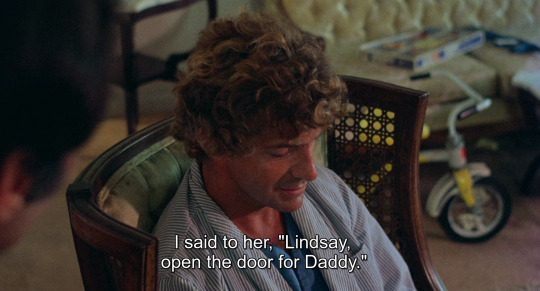
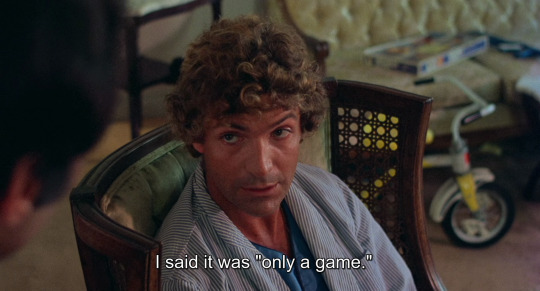
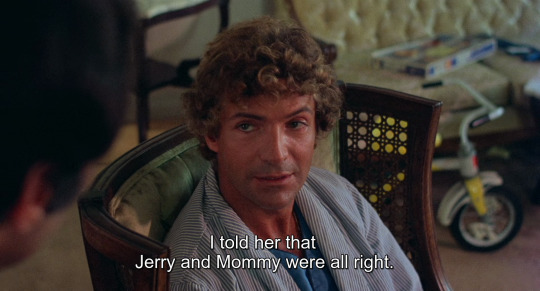

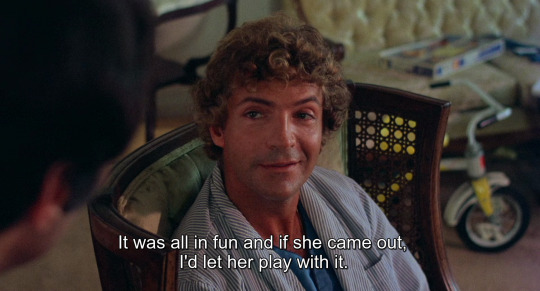
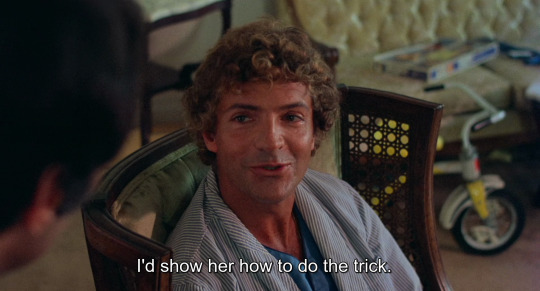
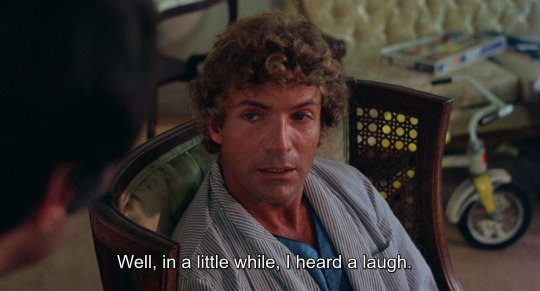
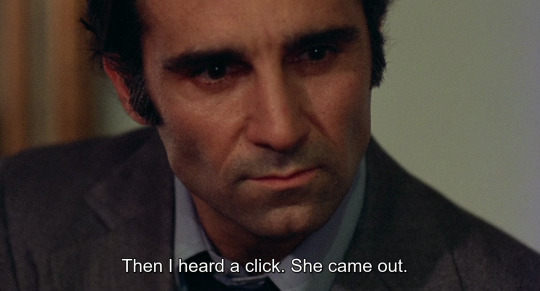
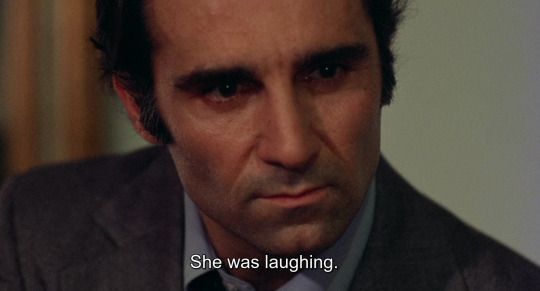

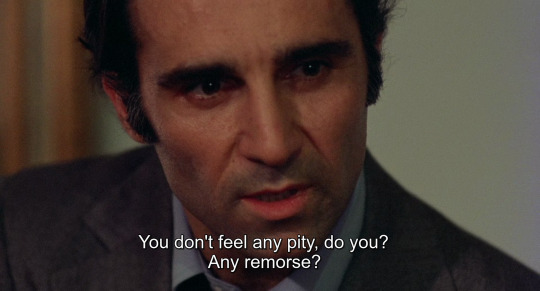

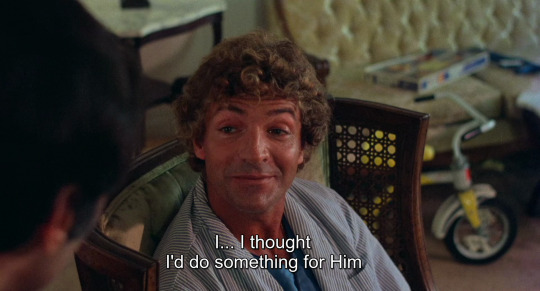
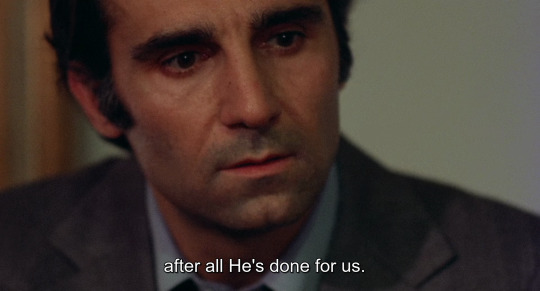
God Told Me To (Larry Cohen, 1976)
#this guy is so good this scene is insane#god told me to#tony lo bianco#larry cohen#caps#subtitles#watching a movie and being like oh yeah movies could be like this
35 notes
·
View notes
Text









#italia a mano armata#genova a mano armata#poliziottesco#Italian crime movie#maurizio merli#franco martinelli#saxson#poliziotteschi#tony lo bianco#adolfo celi#mario lanfranchi#john saxon
3 notes
·
View notes
Text
Under the Radar: Jim Marks' Year-end List for 2023

Samuel Leipold, Jürg Bucher, Lucca Lo Bianco
The stream of great new music is constant and impossible to keep up with. Inevitably, some of it goes largely unnoticed. My year-end list consists of releases that I really enjoyed but didn’t get around to writing about and haven’t seen reviewed elsewhere in English. They are presented in no particular order.
Samuel Leipold, Jürg Bucher, Lucca Lo Bianco — Ostro (Ezz-thetics)
This trio of clarinet, double bass, and guitar delivers atmospheric free jazz. Experimental without being confrontational (included is a choice Jimmy Giuffre cover), Ostro offers a rarely heard sound palette and consistently interesting arrangements.
Luis Ribeiro — A Invenção da Ficção (Porta Jazz)
The Porta Jazz label out of Portugal released fewer records than usual this year, perhaps a lagging effect of Covid. One standout is the debut by guitarist and composer Ribeiro, who leads a sextet with tenor and baritone saxophones in the front line. Love the eerie vocalization on the opening track. Space age and swinging.
Adrián Royo Trío — Pangea (Errabal Jazz)
youtube
This Spanish release initially caught my eye in the La Habitacion de Jazz blog because of the involvement of double bassist Manel Fortià. Strong original melodies and tight interplay make for a standout piano trio recording in a great year for piano trios.
Javier Burin — Escenarios (Los Años Luz Discos)
Another excellent but low-profile piano trio release this year. The assuredness and inventiveness of Argentinian Burin’s playing are the more remarkable given that he is only in his early twenties; check out especially the unlikely cover of “Tenor Madness.”
Marcus Eads — Pride of Ostego (self-released)
This Minnesotan has been putting out gentle Takoma-style guitar music for more than a decade. Strongly rooted in the rural midwestern landscape, his playing and homespun compositions call to mind back porches, canoe trips, and sitting by the fireside.
Scott Tuma — Nobody’s Music (Haha)
I was thrilled to stumble across this unheralded release recently by the Souled American alumnus and one of the architects of slowcore. Apparently first appearing last year on cassette, Nobody’s Music, coming six years after No Greener Grass, delivers more ambling and spindly acoustic guitar lines that seem to drip out of the instrument with the occasional accompaniment of what sounds like harmonica or accordion. Enchanting as always.
Mohamed Masmoudi — Villes Éternelles (Centre des Musiciens du Monde)
Canadian oud master Masmoudi creates a compelling blend of Arabic music and jazz in a percussion-less quartet also featuring clarinet, piano, and double bass. With top-notch musicianship and catchy tunes, the group shows how good world music fusion can sound.
Jorge Abadias — Camins (Underpool)
The Underpool label documents the lively Barcelona jazz scene. Its 2023 releases include this quartet date led by guitarist Abadias. His original post-bop (in the broad sense) compositions tend toward slower tempos, and fine soloing abounds.
Jakob Dreyer — Songs, Hymns, and Ballads Vol. 2 (self-released)
Another solid post-bop quartet recording featuring original compositions. Three U.S. musicians fill out German double bassist Dreyer’s quartet, and this second volume nicely complements Vol. 1 released last year.
Various Artists — You Better Mind: Southeastern Songs to Stop Cop City (self-released)
This project, spearheaded by the Magic Tuber String Band (who also released the outstanding Tarantism in 2023), brings together a broad swath of musicians, including Joseph Allred, Shane Parish, Sally Anne Morgan, Nathan Bowles, the Tubers themselves, and some I was unfamiliar with. The music tends toward the rustic; much of it is excellent, and the cause is as noble as they come.
Jim Marks
#dusted magazine#yearend 2023#jim marks#samuel leipold#jürg bucher#lucca lo bianco#luis ribeiro#adrián royo trío#javier burin#marcus eads#scott tuma#mohamed masmoudi#jorge abadias#jakob dreyer#magic tuber string band
7 notes
·
View notes

